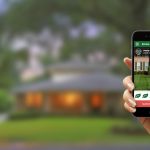
We’ve spoken to thousands of customers who have gotten lawn care service in Orlando, Northern Virginia, Washington D.C., Austin, and elsewhere, and there is one complaint we hear more than any other. Surprisingly, it has nothing to do with the quality of the lawn care service. What is it?
“I can never get a hold of my lawn care guy. He never answers my calls!”
But if you’re an owner-operator that spends their day in the field you shouldn’t be expected to answer every phone call. If you’re like many contractors, you likely let most calls go to voice mail. You’re probably good at getting back to customers promptly, too. Far too often, however, you reach their voice mail, and thus begins the wretched game of phone tag. This process is frustrating for both you and the customer. Could there be a better way?
We believe so. The owner-operated companies that have the highest customer satisfaction rarely take calls. This is because they are email-first companies.
Why Your Lawn Care Business Should be Email-First
Since nearly everyone has a smart phone these days, email is a more effective way to interact with your customers phone or text. Here’s why you should get your customers to switch to emailing you over calling/texting.
- Your Customers Probably Already Use It: Most customers who hire lawn care companies work in an office, and at every office job, the primary method of communication is email. In corporate America, you don’t pick up the phone and call someone; you send them an email asking when to call. Chances are, your customers already habitually communicate using email. Pro Tip: Get your customers’ work email and personal email!
- Threaded Conversations: Voice mail messages and phone calls have little to no record of what was actually said. Emails are great at recording communications. They allow you to go back through a customer’s history and figure out exactly what they wanted. If there is an issue, you can always point back to what was said in an earlier message.
- Better Organization: On the phone, it’s easy to forget what was said and let it slip through the cracks – especially if you’re in the field and don’t have access to a notepad. Admit it. We’ve all done this. Email creates a constant reminder that sits in your inbox. Sure, it’s still possible to ignore emails and forget about them. But it’s much easier to organize your tasks by treating your email inbox in a “to do list” fashion – more on this below.
- More Time to Respond: When a customer calls and reaches your voice mail, they can’t help but be a little pissed off. But when someone sends an email, they are allowing you some response time.
- Greater Bandwidth: You can only convey so much information over the phone. Imagine detailing an estimate for creating a flowerbed over the phone. You can’t expect a customer to remember it all the details! Emails allow you to organize your thoughts and lay them out clearly for the customer. Bonus: you can include pictures and links to related articles in an email.
- Better Engagement through Mass-Messaging: Using a simple free tool such as Mail Chimp, you can maintain engagement with your customers. You can remind everyone that it’s time for that fall aeration & overseeding. You can take your marketing to the next level by offering referral incentives. For example, one successful technique is to send a forwardable email for free service for every friend they refer. If there’s equipment failure, you can send out a quick email.
How to Make Email Your Primary Method of Communication
Once you realize the potential of using email-first communication the next question is: “How do I make this transition?”
First, get all of your customers’ emails. This may take some time, but it’s important. Set aside a couple hours in the evening when people are home from work, and give them a call asking for their email address. Explain that they will be able to reach you much more quickly via email. Most people will understand. There’s a chance some people won’t, such as older demographics, but we’ll touch on this later.
Next, add a caveat in your voice mail message explaining how busy you are. Say that the best way to reach you is via email. Of course you should still allow customers to leave voice mails. But when you return their calls, be sure to engage them in email.
Finally, get good at responding to email. Install a mail app on your phone so you can respond quickly. If you have a crew, you may want to let one of them drive (assuming they have a commercial license) so you can focus on emails during the drive. If this isn’t an option, I recommend batching your emails. This means answering emails 2-3 times per day. For example, you could work on emails at 6:00 a.m., noon during lunch, and after you get home. Let your customers know that these are the times they should expect a response.
Should you still answer calls? Yes. But once you’ve conditioned your customers to using email, 90% your calls will be from prospective clients! You can afford to interrupt a job for a new customer.

Tips
- Treat Your Email as a To-Do List with Mailbox: Look at it this way: email is a to-do list. Each message has something it asks of you. It could be responding to someone, updating your bank account information, unsubscribing from a spammy mailing list, or just deleting the message. Make sure you do the task, and then get rid of the email. Do not just let emails sit; this is how you miss things! Mailbox is my favorite app as you can easily set reminders to deal with messages.
- Set Up a Mailing List: Set up a mailing list for your customers. Use a site like Mail Chimp or Constant Contact. Using this, send out reminders, public service announcements, lawn tips, special deals, etc. Don’t be spammy; only send out messages that are valuable to your customers.
- Use Emails to Set up Calls/Meetings: There are many times where a phone conversation or in-person meeting is better than an email. Avoid phone tag by getting in the habit of scheduling phone calls via email. This gives you time to prepare for it, and cuts down on the back and forth.
Q&A
What if my customers don’t use email?
It’s fairly common for contractors to have a handful of customers who don’t like to use email as a method of communication. These customers may be OK with playing phone tag, and you can continue to do that with them. Or, you may realize this small part of your customer base that is taking up a disproportionately large part of your time. In that case, you can simply drop them. It’s up to you.
What if a customer needs to reach me immediately?
There are many cases when a customer needs to get in touch with you quickly, maybe because they don’t want service that week or they have a last-minute request. First of all, many times phone calls don’t fix this because by the time you’ve heard their message, you’re already at their property. But, the best way to solve this problem is to include a 24-hour policy in your service agreement (i.e. you need 24 hours to accommodate any cancellations or special requests.) This is more than reasonable. In fact, it’s generous and better for the customer. If you try to accommodate every last minute request, you’ll inevitably miss some of them. If explained properly, your customers will appreciate that you’ve created a system to ensure a great, consistent, customer experience.
So I shouldn’t use the phone at all?
Absolutely not! There are times when a call is warranted. For example, one thing you should do every quarter is call your customers and ask for feedback. Doing this over the phone shows you care because it’s more personal. The point of switching to email is to transfer all of your run-the-business communication to a much more efficient, scalable communication medium.
What about texting?
Aside from being unprofessional, the short nature of it limits the scope of what can be said. Additionally, email threads are much more organized, searchable, and able to be treated as a to-do list. If executed properly, email can replace texting entirely.
I have an office manager. Should I still try to switch to email?
We’re going to go out on a limb here and say that your office manager would love to switch to email! Rather than get bombarded with calls at one time during the day, they can respond methodically. It’s also much easier to take what was sent in an email and put it on a schedule, rather than listening to a phone call, taking notes, then putting it on a schedule.





